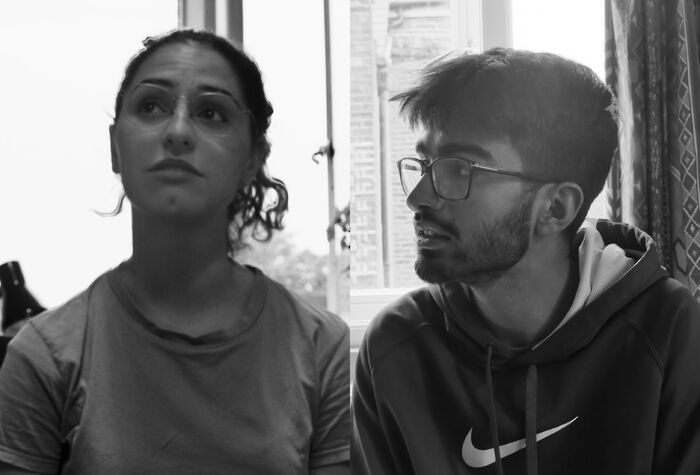Five University Council members make landmark dissent over ‘arbitrary’ restriction of documents
“We cannot properly discharge our duty as trustees of the University if we are arbitrarily and persistently denied the access to such documents”, wrote the dissenters

A fifth of the University’s executive decision-making, the University Council, has dissented from this year’s annual Council report – the first time in at least ten years.
Five members of University Council – Professor Ross Anderson, Professor Nick Gay, student representative Marcel Llavero Pasquina, Graduate Union president Sofia Ropek-Hewson, and CUSU President Evie Aspinall – wrote in a note of dissent that they are unable to support this year’s report because of a lack of transparency in the University’s Investment Office.
They wrote: “We cannot properly discharge our duty as trustees of the University if we are arbitrarily and persistently denied the access to such documents, in particular, to those of the Investment Board.”
Every year, University Council publishes a report detailing its conduct, reports from committees, and actions from decisions made during Council meetings. One of the bodies which reports to Council is Cambridge’s Investment Board, which advises Council through its Finance Committee on matters relating to the University’s endowment.
The note of dissent cited Council members’ repeated requests for papers from the Investment Board, all of which have been denied.
In November last year, Council member Professor Ross Anderson, who is among the dissenters, requested access to Investment Board papers following The Guardian’s Paradise Papers revelations, which revealed that £1.3m of the University’s £6.3bn endowment – the largest of any university in Europe – was invested in offshore fund Coller International, which had its biggest investment, amounting to $1bn, in fossil fuels company Royal Dutch Shell.
Professor Anderson reported to Regent House, the University’s democratic decision-making body, that he had not received the papers during a discussion this January on last year’s annual report. In a statement to Regent House, he wrote: “I can conceive of no valid reason for keeping it confidential from the trustees of this University. We are responsible, after all.”
Professor Anderson noted that he had signed last year’s Annual Report only after having been “reassured by the Chief Financial Officer and the Vice-Chancellor … that they will raise the issue of access by members of the Council firmly at the February meeting of the Investment Board.”
He said: “… if the University’s trustees continue to be unable to find out where our money is invested then I cannot imagine being able, as a trustee, to sign the Report again in 2018.”
Following the release of the Divestment Working Group report – a milestone report a year in the making – earlier this year in June, which recommended greater transparency of the University’s investment processes, Council members repeatedly requested access to papers again. They said: “This has either [been] denied with various excuses, or access has been promised and not delivered.”
The issue of transparency in the University’s investment processes has been raised repeatedly by activists and campaigners.
At Vice-Chancellor Stephen Toope’s first open meeting held in March this year in response to Old Schools student occupiers’ demands, Toope responded to accusations of complicity with human rights abuses in Nigeria through Shell investments, saying: “How do we know that we’re investing in Shell?”
Toope claimed the University's investments are held in “funds of funds”, meaning the exact companies it has investments in are unclear. One student shouted in response: “Invest only in transparent things.”
Dissenting Council members wrote in their note of dissent: “We accept that there are some circumstances where investment decisions cannot be made public – such as venture capital investments in startups that are still in stealth mode.
“However that is no argument for preventing us as trustees from seeing the Board papers in confidence, as is normal with the papers of all other committees that report to Council.”
Today, 200 Cambridge academics released an open letter calling for greater transparency in the operations of the Investment Office and Board, and for more than half of the Board to comprise elected staff and student representatives.
The letter described the Investment Office as the “stewards of the resources that will sustain this institution’s future – and deeply impact the public it serves”.
 News / Uni Scout and Guide Club affirms trans inclusion 12 December 2025
News / Uni Scout and Guide Club affirms trans inclusion 12 December 2025 News / Pembroke to convert listed office building into accom9 December 2025
News / Pembroke to convert listed office building into accom9 December 2025 Features / Searching for community in queer Cambridge10 December 2025
Features / Searching for community in queer Cambridge10 December 2025 News / Uni redundancy consultation ‘falls short of legal duties’, unions say6 December 2025
News / Uni redundancy consultation ‘falls short of legal duties’, unions say6 December 2025 News / Gov declares £31m bus investment for Cambridge8 December 2025
News / Gov declares £31m bus investment for Cambridge8 December 2025










